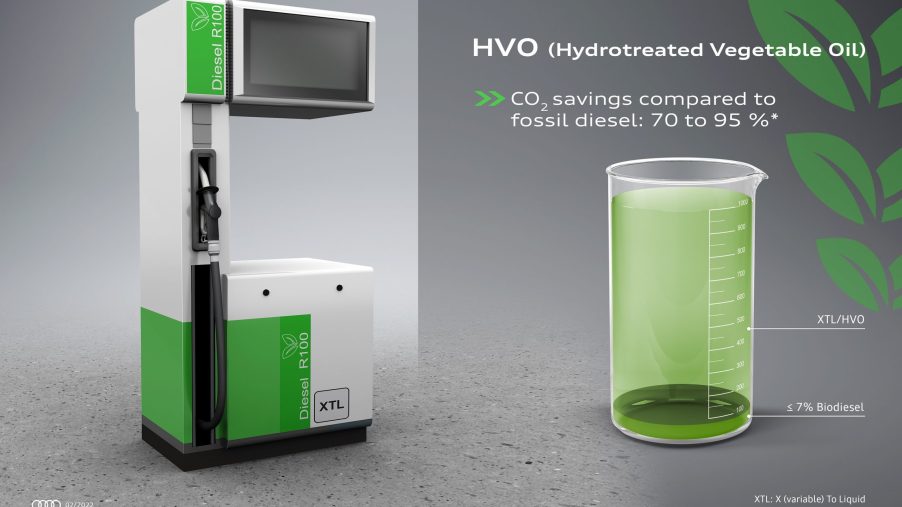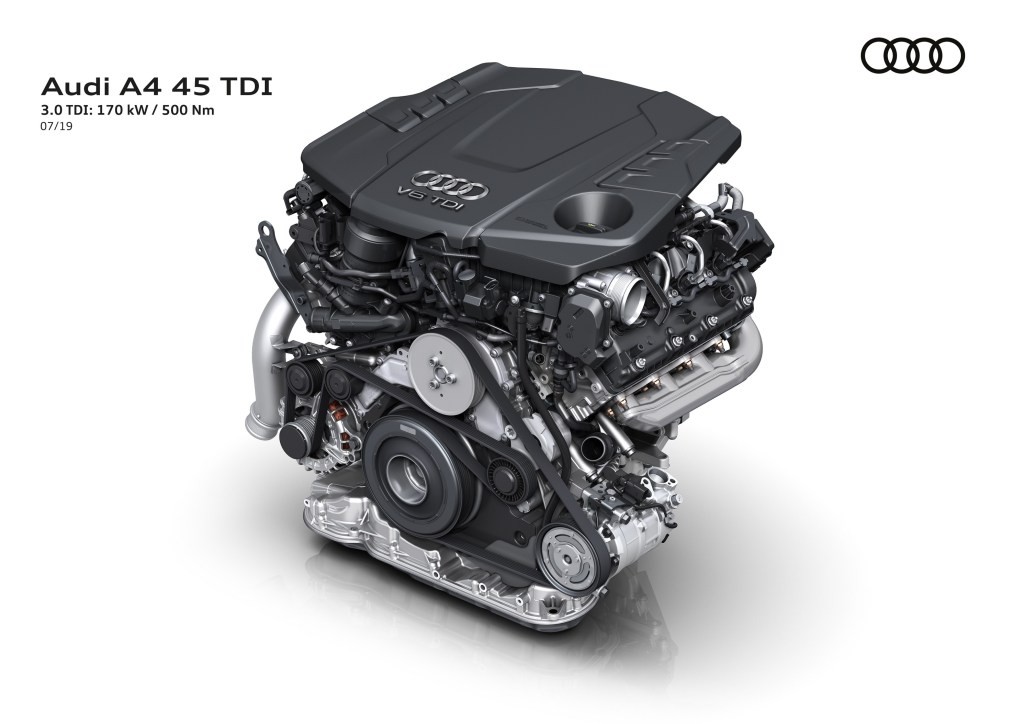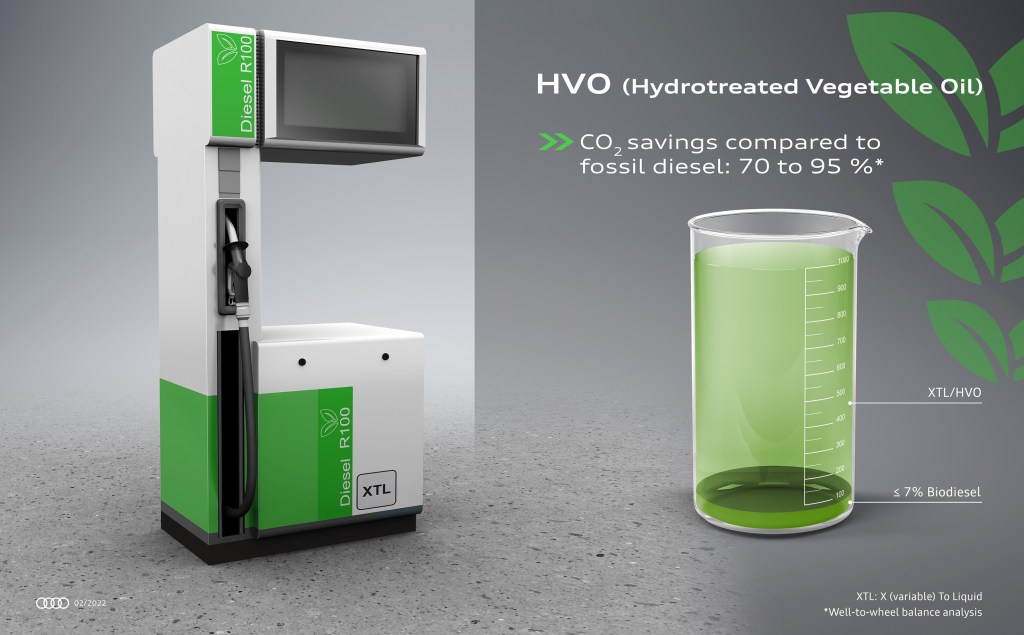
Biofuel Boost: Audi V6 Diesel Is Now a Vegetable Oil Burner, Too
Though it’s still a popular pickup truck feature, the diesel engine’s reputation has taken a battering these last few years. Even if Volkswagen hadn’t, um, helped things along, automakers are mostly prioritizing electric vehicles over internal combustion. But EVs won’t dominate the market for years. So, in the meantime, some companies are trying to clean their oil burners up. And for Audi, that means getting its diesel engines off the crude oil and onto the vegetable oil.
The latest crop of 2022 Audi V6 diesel cars and SUVs can run on a vegetable oil-derived renewable biofuel

If the idea of putting vegetable oil in a diesel car’s fuel tank seems (forgive me) crude, it’s not. Many W123 Mercedes owners have converted their classics to run on the stuff. However, the oil that Audi recently certified for use in several of its V6 diesel models isn’t regular vegetable oil.
Instead, Audi says a variety of its latest diesel cars and SUVs can run on hydrotreated vegetable oil (HVO). HVO is a renewable biofuel typically made from agricultural residue, plant matter, and, yes, used cooking oil. When these various oils react with hydrogen, they either break down into smaller hydrocarbons (hydrocracking) or gain extra hydrogen (hydrogenation). And the result is a biofuel that can either be mixed with conventional diesel or used on its own. Audi is choosing the latter option.
Not all Audi diesel models can run on HVO, but the company says more models will become compatible soon. For now, the list is limited to cars and SUVs with V6 TDI engines rated at no more than 282 hp and manufactured no earlier than mid-February 2022. And as of this writing, the list includes the following diesel Audis:
- A4
- A5
- A6
- A7
- A8
- Q7
- Q8
Audi says diesel Q5s will be compatible starting in March 2022, while A6 Allroads will be added in the summer. Also, unsurprising given Volkswagen Group’s engine sharing, the VW Touareg V6 TDI is HVO-compatible.
However, several non-V6 diesel Audis were already certified to run on HVO. Four-cylinder A3, Q2, and Q3 TDIs have been capable since June 2021, as have the four-cylinder A4, A5, A6, A7, and Q5.
Does this renewable biofuel really make these Audi diesel cars and SUVs cleaner?

Audi claims that running diesel vehicles on HVO instead of ‘conventional’ diesel fuel comes with several benefits. Firstly, it cuts CO2 emissions by 70-90%. Secondly, HVO has a higher cetane rating (diesel’s equivalent of octane), so it burns faster and more completely. That not only improves emissions but makes cold-starting significantly easier.
In addition, it’s worth noting that HVO isn’t the same thing as ‘regular’ biodiesel. For one, the latter is more sensitive to low-quality material sources, The Drive says. Also, ester-based biodiesels can absorb water and even damage engine components unless they’re mixed with conventional diesel fuel. HVO, though, doesn’t have these drawbacks.
On paper, therefore, running diesel cars on HVO seems like a slam-dunk as far as emissions are concerned. And before you start mentioning the recent ethanol carbon study, know that Audi’s ’70-90%’ claim is based on a cradle-to-grave life-cycle analysis. In other words, it accounts for more carbon than just what comes out of the tailpipe.
Admittedly, there’s another possible concern. A recent California Air Resources Board (CARB) study found that, while renewable diesel reduces CO2 emissions overall, renewable/conventional diesel blends produce more NOx emissions in so-called new-technology engines, Reuters says. That’s concerning, given that diesel engines emit more NOx than gasoline ones on a normal basis.
However, the study also found that 100% renewable diesel fuel didn’t produce more NOx than conventional diesel. And during its initial testing, CARB found that renewable diesel decreases particulate emissions, too. So, theoretically, using only HVO shouldn’t increase Audi diesel NOx emissions. And it could even decrease other non-CO2 tailpipe emissions, too.
Can existing Audi owners in the US use this fuel?
As beneficial as this should be for European Audi diesel owners, it sadly won’t help Americans. You can’t buy a new Audi TDI product in the US anymore and used oil-burning Audis aren’t compatible with HVO. But even if they were, HVO is far less readily available in the US than it is in Europe. It’s hard finding E85 in some states, let alone biofuel diesel substitutes.
Still, this does show that there are ways of making internal combustion cleaner. EVs won’t take over the road anytime soon, especially if they remain unaffordable. That means whoever doesn’t own one will still need gasoline or diesel of some kind. At least with HVO and fuels like it, we won’t have to drill into the ground to get some.
Follow more updates from MotorBiscuit on our Facebook page.


